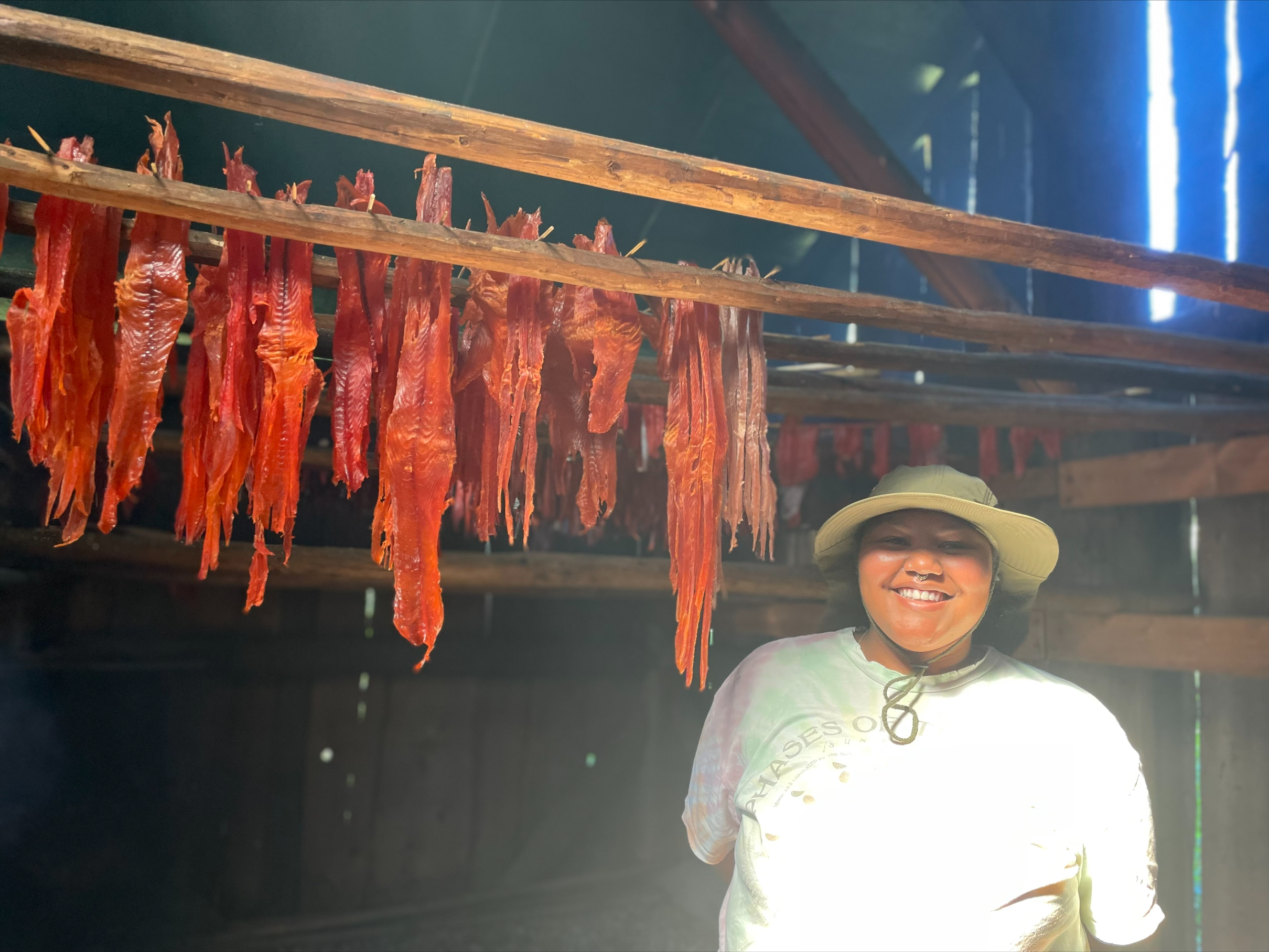
A mixed-race Indigenous and African American youth living in BC, Taleetha enjoys spending time on the land, including on her mother’s traditional territory, learning about traditional ways of being and knowing – and what it means to be Wet’suwet’en.
She says this connection is important for her spiritual, mental, physical, and emotional well-being as it keeps her feeling whole and balanced. So, she makes a yearly trip home to reconnect with her territory and traditional land base. “I value my mom’s ancestral land a lot because I know it’s there and is accessible to us. I know where to find it and I know I can go back to it.”
One activity Taleetha especially enjoys while on her traditional territory is berry picking with other community members. She finds this is one of the food-harvesting activities (others are hunting and fishing) that brings the community together. Everyone has a role and responsibility, whether it’s picking berries or cleaning them or making pies or jam with them. Last year, her community hosted a community jam day, with everyone from Elders to youth participating.
“It was such a joy being in a space learning together; we all understood how powerful this was, and how healing food and food preparation and cooking can be. We put so much love, laughter, and good intentions into that jam – they’re all part of our cultural ways of harvesting, cooking, canning, and gathering. It was good to know that everyone had a sense of belonging and a role in community. It may sound simple – it’s just berry picking – but there is so much more to it.”
First Nations communities understand that the connection to the land is so much more than food, and that food is much more than just nutrition. “It’s security, nourishment, and safety – having access to our traditional foods like our fish is good medicine for me. Making an effort to go home to learn how to can, smoke and preserve our fish for the winter so I can have that good medicine, nourishment and connection when I am away from home, helps to keep my spirit strong.”
When Taleetha travels, she brings a jar of canned salmon so she can share a bit of her community’s harvest and cultural teachings with the people she meets. She also does it to have a piece of “home” with her, although she does worry every time that the jar of salmon might explode in her suitcase!
Taleetha has also been able to share with other Indigenous youth the teachings her grandparents and great grandparents share with her when they harvest medicine together on their traditional territory. One of these medicines is the devil’s club plant, which Taleetha learned was used by her ancestors to treat arthritis, cancer, wounds, fever, tuberculosis, stomach trouble, cough, colds, sore throat, diabetes, low blood sugar, and pneumonia.
Sharing medicines, picking berries, canning salmon, learning or laughing together -- these are all interwoven examples of how food and food-harvesting activities are about so much more than just nutrition.
Check out Taleetha’s wellness page on Facebook, Indigenous Wellness Wednesday, for tips, connections and conversations about everything wellness-related!
Remember to share your Food is Medicine creation here or tag us on social media @FNHA – we want to hear from you!

